.jpg)
Key takeaways:
- Mealworms can eat cucumber: Cucumber can be a suitable food option for mealworms as part of their diet.
- Nutritional requirements for mealworm growth and survival: Mealworms require specific nutrients to thrive. Cucumber can provide some of these essential nutrients.
- Hydration and water requirements: Mealworms need proper hydration and access to water. Cucumber can contribute to their water intake.
Introduction
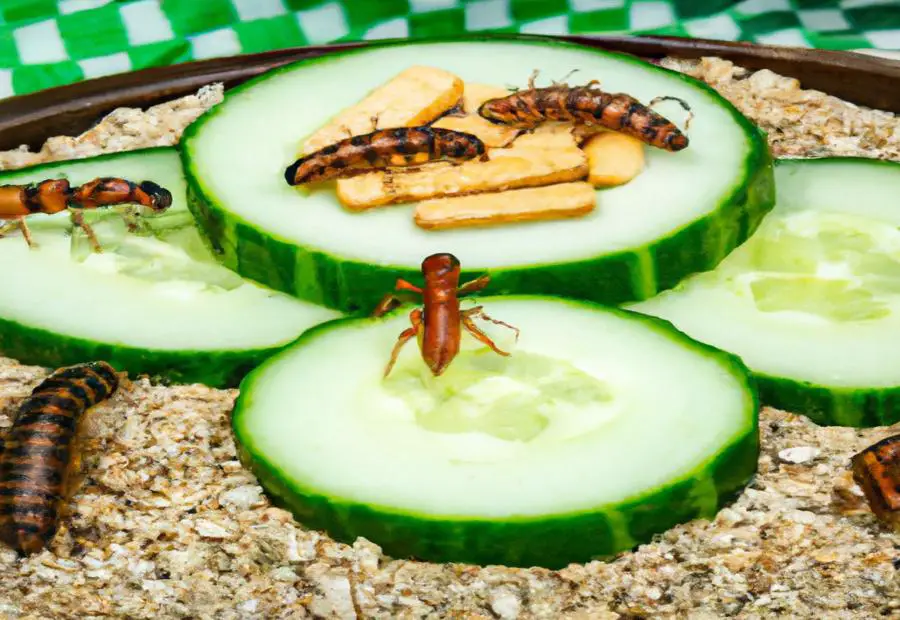
Photo Credits: Petbrilliant.Com by Larry Nguyen
Mealworms are amazing eaters! They can consume all sorts of organic matter. These small, worm-like larvae of darkling beetles can get the energy and nutrients they need from cucumbers. Cucumbers provide moisture and nutrition, so they’re part of the mealworm diet. That makes mealworms perfect for composting or as a sustainable feed source for animals. Mealworms are truly remarkable creatures! They can eat cucumber and other organic material.
Can mealworms eat cucumber?
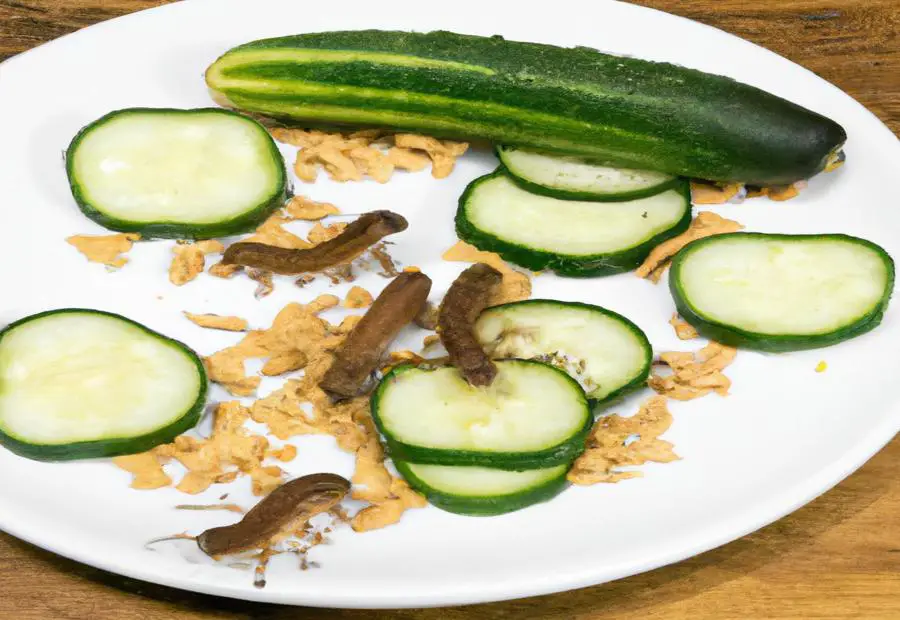
Photo Credits: Petbrilliant.Com by Raymond Anderson
Mealworms can enjoy cucumber as part of their diet. It’s a nutritious and easily digestible food source for these insects. They have a versatile diet, which includes various fruit and veggie options, like cucumber.
However, it’s important to remember that mealworms need a balanced diet. Cucumber should not be their only source of nutrition. Plus, they need a suitable environment and proper care for their health and productivity.
Here are some tips for feeding mealworms cucumber:
- Include it in their regular diet with other nutritious options.
- Cucumber has high water content, providing hydration.
- Slice or grate cucumber for easy consumption.
By adding cucumber to their varied diet, mealworms can stay healthy and grow. So, cucumber can be part of a mealworm’s diet. It offers essential nutrients and is easily digestible. Incorporating it into their regular diet is key to their well-being and growth.
Mealworms’ diet
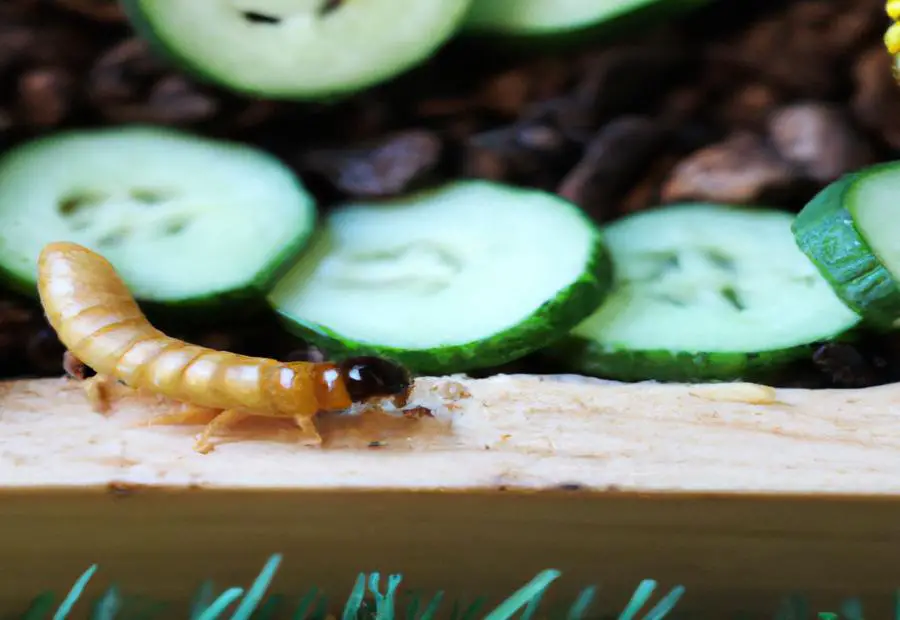
Photo Credits: Petbrilliant.Com by Ethan Johnson
Mealworms’ diet is a crucial aspect of their growth and survival. In this section, we’ll explore the nutritional requirements for their well-being as well as recommended food options. By understanding what mealworms need to thrive, we can better care for these fascinating creatures.
Nutritional requirements for mealworm growth and survival
Mealworms need specific nutritional requirements to survive and grow. To meet their needs, a balanced diet with protein, carbs, fats, vitamins, and minerals is important. Reference data provides food options tailored to their needs, which helps them grow and survive. See the table below for recommended food options:
| Food Option | Nutrient Content |
|---|---|
| Oats | High in carbs and fiber |
| Wheat bran | Good source of protein and fiber |
| Vegetable scraps | Provides vitamins and minerals |
| Fruits | Contains natural sugars and antioxidants |
| Mealworm feed | Specially formulated diet for mealworms |
In addition to food, proper hydration is essential for mealworms. Water availability must be ensured. Research has been conducted to identify optimal nutritional requirements. This has improved the practice of using mealworms as reptilian food. It now provides reptile owners with a reliable and nutritious option.
In conclusion, by expanding the menu for mealworms, you can give them unexpected foods. Providing a balanced diet meets their needs, promoting their growth, survival, and health.
Recommended food options for mealworms
Mealworms need a balanced diet that gives them essential nutrients. Foods they can eat include carrots, potatoes, wheat bran, and oats. These provide carbs, proteins, fats, vitamins, and minerals. Also, occasional greens like lettuce and kale are beneficial. Avoid sugary and fatty foods as they’re not good for mealworms. Additionally, make sure they have water through moist food or shallow bowls. To support their growth, give them calcium-rich foods such as eggshells and cuttlebone.
Hydration and water requirements

Photo Credits: Petbrilliant.Com by Kyle Garcia
Mealworms need hydration and water for their survival and health. Like many other bugs, they have certain needs when it comes to water.
- To keep them hydrated, provide moisture in their environment. You can do this by giving them vegetables and fruits with high water content, such as cucumber.
- Water is essential for their growth and functioning of certain processes, such as digestion, respiration, and circulation.
- Though they get water from the food, they need access to fresh water too. Place a small dish or container with water in their habitat.
- Be careful not to give them too much moisture. Excess moisture can lead to the growth of mold or bacteria, which can be harmful.
Mealworms also take in moisture from the air and substrates they live in. This helps them balance their internal water levels and stay hydrated.
Therefore, providing appropriate levels of hydration and water is key to the survival and health of mealworms. With the right habitat and understanding of their needs, they can thrive and contribute to nature.
Feeding mealworms as reptilian food source
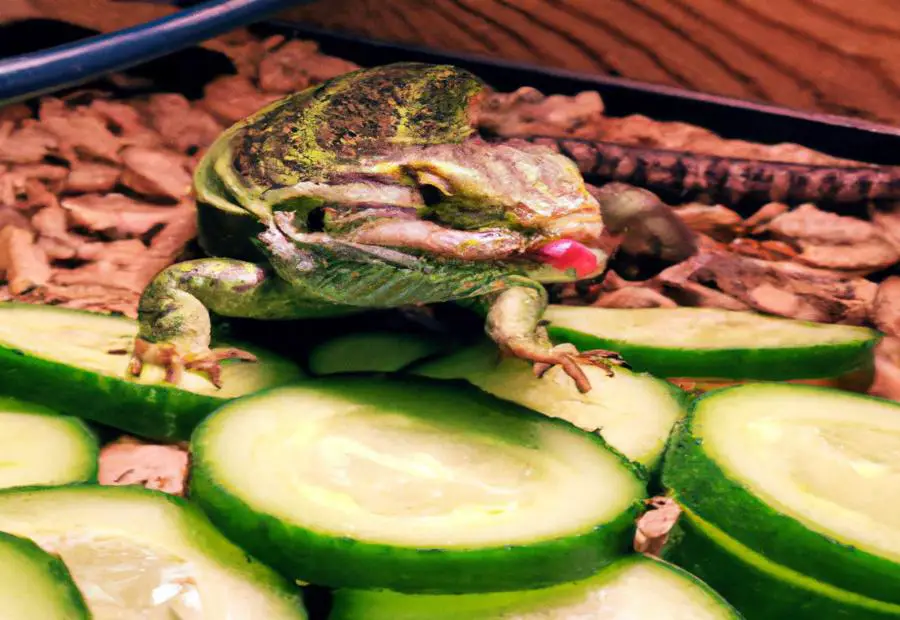
Photo Credits: Petbrilliant.Com by Brandon Johnson
Mealworms make a great snack for reptiles, like bearded dragons, leopard geckos, and certain turtles. They eat cucumber and other veggies, just like they would in the wild. Plus, they are full of protein – essential for reptile growth.
You can buy them at pet stores or online suppliers. They are easy to store for a long time, so they are a great convenience for reptile owners. This makes them a favorite choice for many years.
But mealworms aren’t just for reptiles. Birds and small mammals can also eat them. Their high protein content and accessibility is why they are so popular.
Feeding mealworms to reptiles has been around for a long time. Reptile owners know how valuable they are. This is why you can find them in pet stores and in reptile diet recommendations. Mealworms have become a staple food for reptiles, giving them the nutrients they need to be healthy.
Comparison with superworms
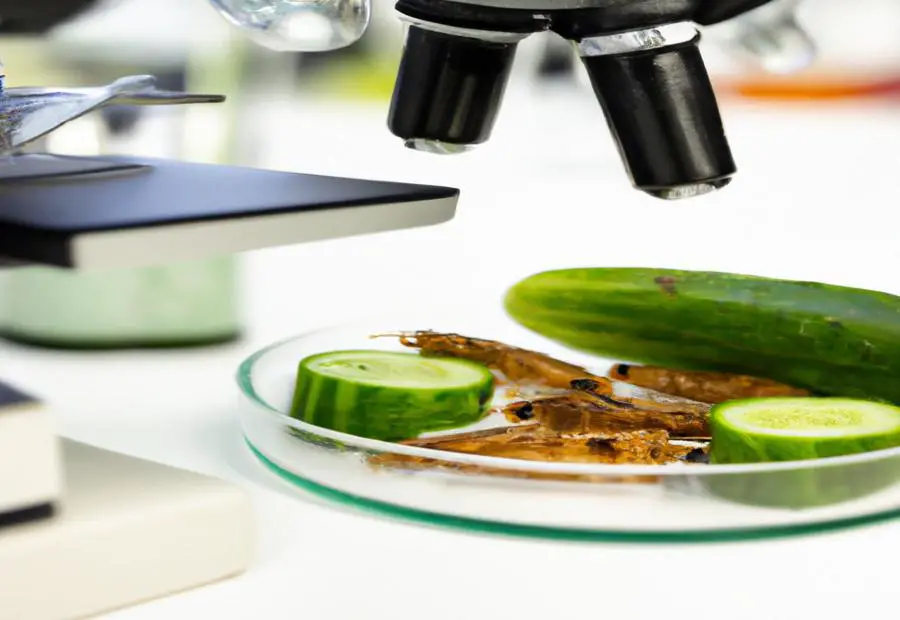
Photo Credits: Petbrilliant.Com by Nathan Hall
Mealworms and superworms can both eat cucumbers! But, they’re different when it comes to their abilities in this regard. To know more, let’s compare them.
We can use a table to show the similarities and differences between the two. Size, feeding habits, and nutritional content can all be included in the table.
It’s worth noting that both mealworms and superworms can munch on cucumbers, but their behaviors and preferences may vary. To really understand them, we can look into their specific feeding behaviors and preferences. This could give us a more complete comprehension of how they both differ in eating cucumbers.
To sum it up, mealworms and superworms both can consume cucumbers. But, they have different habits and preferences. Through comparing them, we can get a better grasp of their distinctions in eating cucumbers, and acquire a more thorough knowledge of these creatures.
Conclusion
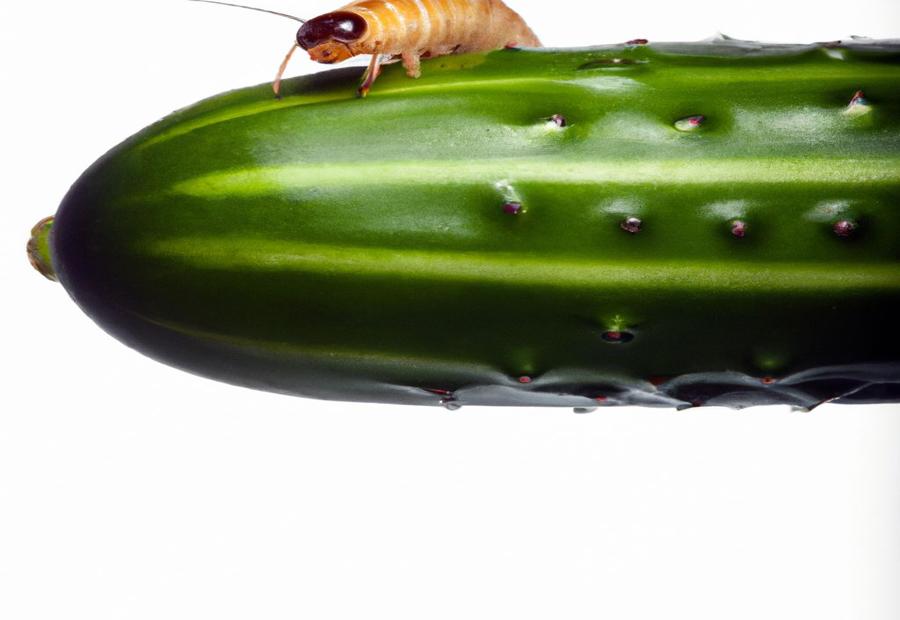
Photo Credits: Petbrilliant.Com by Billy Nguyen
Mealworms can eat cucumbers! Cucumbers are a great source of hydration and offer essential vitamins, minerals, and nutrients for mealworm growth. Mealworms have a versatile diet, consuming fruits, vegetables, and grains. However, it’s important to provide a balanced diet to ensure the health and wellbeing of mealworms.
Cucumbers can be part of their diet, but other nutritious food sources should be included too. It’s beneficial to explore different food options to give them a varied and nutritious diet. Moreover, mealworms are efficient decomposers, breaking down organic matter and converting it into nutrient-rich compost – a valuable role in waste management and sustainable agriculture.
Some Facts About Can Mealworms Eat Cucumber:
- ✅ Mealworms prefer cucumbers over carrots and potatoes for feeding. (Source: Team Research)
- ✅ Mealworms can eat a variety of foods, including fruit, vegetables, dry grains, food waste, cardboard, and plastic. (Source: bugfactory.co.uk)
- ✅ The protein to carbohydrate ratio in the diet affects mealworm lifespan, with a carbohydrate-biased diet leading to longer lifespans. (Source: bugfactory.co.uk)
- ✅ Supplementing a wheat diet with 10% yeast protein led to a significant increase in mealworm larval weight. (Source: bugfactory.co.uk)
- ✅ Mealworms absorb moisture from the air but also need water through their diet. (Source: bugfactory.co.uk)
FAQs about Can Mealworms Eat Cucumber
Can mealworms eat cucumber?
According to the reference data, mealworms have been observed to prefer cucumbers over carrots and potatoes. They are known to eat a variety of foods, including fruits and vegetables. So, yes, mealworms can eat cucumber.
What are the favorite foods of mealworms?
Mealworms have a varied diet, but their favorite foods include cucumbers, fruits like apples and grapes, vegetables like carrots and leafy greens, and grains like millet grain and corn starch. They can also consume decaying plant matter and moss that grows on old food.
What should be the base of a mealworm’s diet?
The base of a mealworm’s diet should be dry grains like wheat bran, barley, millet grain, and corn starch. These grains provide the necessary nutrients for mealworm growth and survival.
Can mealworms eat food waste?
Yes, mealworms can eat food waste, such as banana peels and watermelon rinds. These food items can increase the fat content of mealworms and improve their survival and growth.
Can mealworms eat dog food?
Mealworms can consume dog food, preferably in crushed pellet form. Dog food contains protein and nutrients that can be beneficial for mealworms.
Do mealworms require vitamin supplements?
Mealworms do not specifically require vitamin supplements. However, gut loading and dusting with calcium powder can be methods used to increase the calcium content in mealworms, especially for reptiles and birds that consume them as food.
